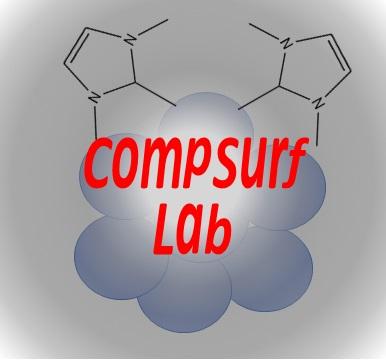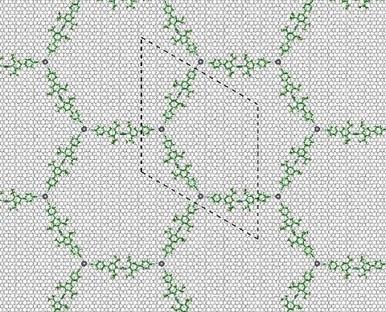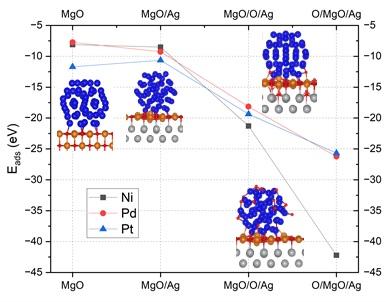Computational Surface Science

CompSurfLab is a computational laboratory devoted to the advanced simulation of surfaces and interfaces by means of first-principles calculations. In particular, we study the formation of ordered molecular structures on the surfaces of metals, oxides and dichalcogenides. First-principle simulations have a pivotal role in elucidating the type of chemical bond which is formed between surface and molecules, its stability, the mobility of the molecules, and the main interfacial physical properties (charge transfer, dipole moment). This information constitutes the basis to rationalize the surface chemical reactivity. This is often done on cooperation with experimental groups devoted to microscopic or spectroscopic studies.
Design and Characterization of Bidimensional Coordination Network

This research line studies ordered bidimensional structures grown on various supports (metals, oxides, dichalcogenides). The interplay between the support and the network building blocks (metal atoms or small aggregates, and organic molecules, carbenes in particular) permits to tune its properties toward several possible applications: catalysis, electrocatalysis, sensing, optics, microelectronics. This research line is based on the use of computational tools to design new coordination networks, and support the interpretation of experimental results from scanning probe imaging and vibrational spectroscopy, also recurring to simulated spectra.
Simulation of physical and chemical properties of model catalysts and materials for electrochemical storage

First-principles calculations and ab-initio molecular dynamics are applied to the simulation of physical and chemical properties of supported metal nanostructures for catalytic or electrocatalytic applications, functionalized carbon-based materials, or layered materials for the intercalations of metal cations in electrochemical storage. The simulations aim at unravelling the structure-property relationships and rationalize the trends in chemical reactivity.
Principal investigator
Prof. Sergio Tosoni